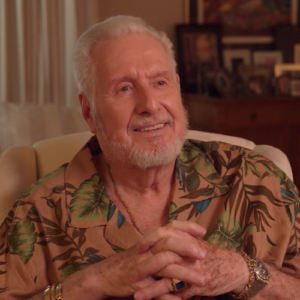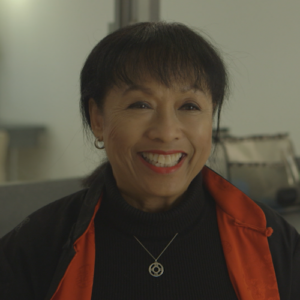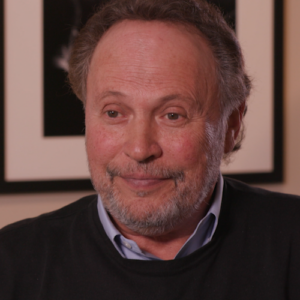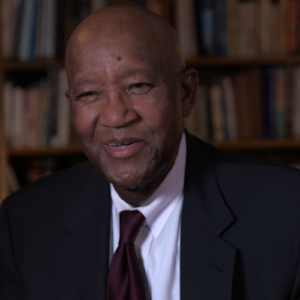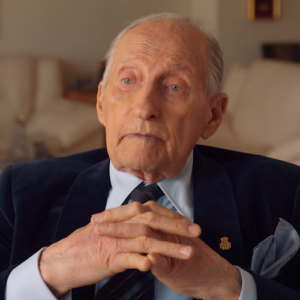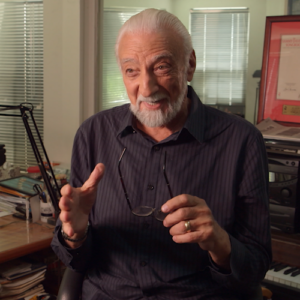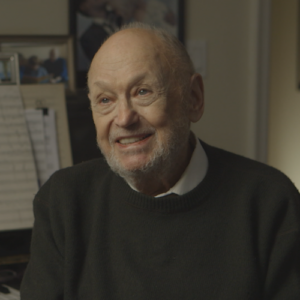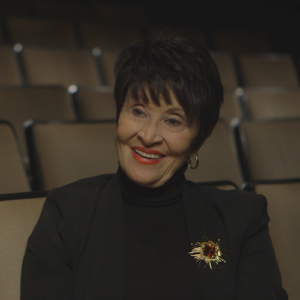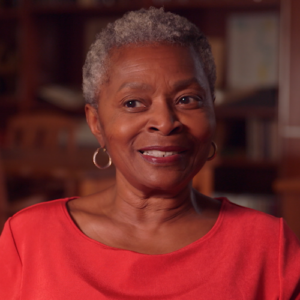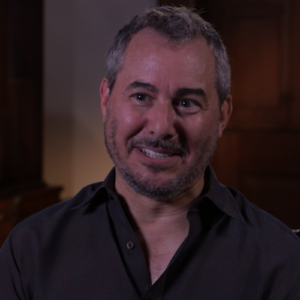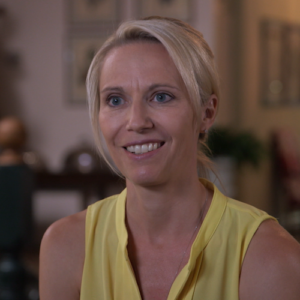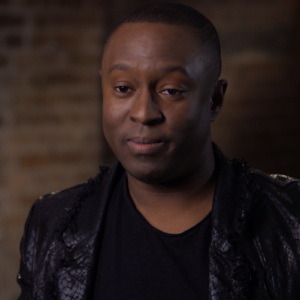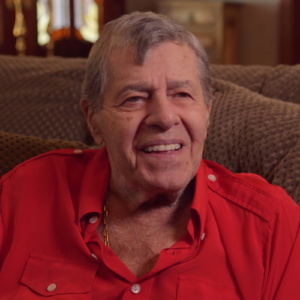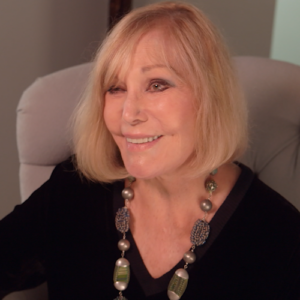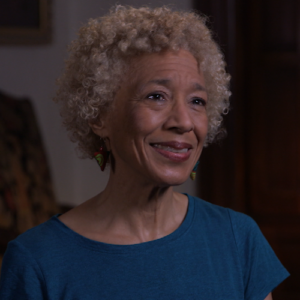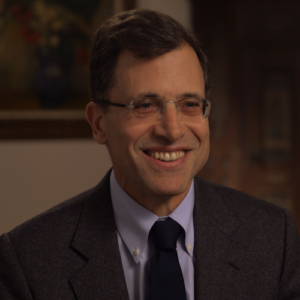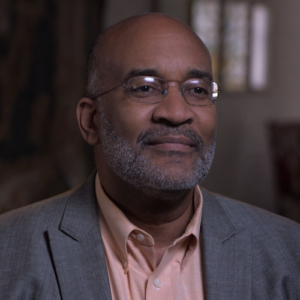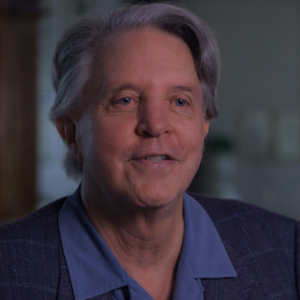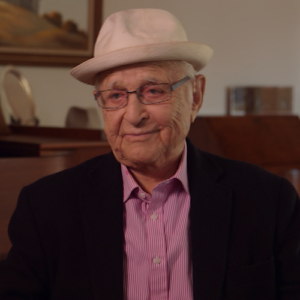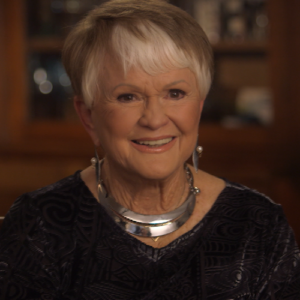Interviewer: Tell us how you ended up meeting Sammy Davis Jr.
David Steinberg: When I got out of the University of Wisconsin in 67, I think I moved to Los Angeles with absolutely zero idea about how I was going to make a living. And I lied to my family saying I was going to go into advertising. And a cousin of mine was married to a molly. Marsh was her name, and she was married to Sy Marsh, who was Sammy’s agent set. And Sy was very friendly with Sammy’s public relations guy, who I won’t mention because he was an ass. And they gave me a job being Sammy’s public relations guy, which is great because I was a history major from Wisconsin, which was perfect. I was just the perfect sweet spot of nepotism. I knew nothing about show business and nothing about anything. One of my very first meetings with Sammy, you know, we just it was a casual thing. And for some reason, we both we fell in love with each other. I was 22. I don’t know how old he was. I’m guessing he was. He was born in 1925. 25. He I think he was in his forties and he was a huge star. And Sammy wanted to enjoy his life. That’s what he wanted. We had a similar dream, and shortly after me getting this job based on no qualifications, I was hanging out with him. He had a great house and I was always at the house for dinner. I was always invited. You know how there’s outer rooms and inner sanctum and all that crap? I was immediately brought into it and I was presented by some of the people involved in Sammy’s life. Partially, maybe because I was white and I was so immediately brought into, you know, with Sammy and. We were out of control virtually every single night. He took me on the road with him a lot when he was in L.A.. I was over, like I said, for dinner. And one night I remember I was driving over there in a borrowed car. I was making 75 bucks a week, so I had no money and I didn’t have any family either. So I was totally broke. I’m going my way over there. Dead drunk cop picks me up, pulls me over. This is where you’re going with Sammy Davis, His house? Sure. Yeah, I see. We were right near. We were on Summit Drive. He lived on Summit, and Cobb drives my car over there with the another officer Fong takes me to the front door, rings the bell, somebody answers the door. I forget who gets Sammy to the door. And the cop is literally, you know, when you hold someone up by their jacket and stuff like that, I was so hammered I couldn’t even talk, Cobb said. Is he years? Jamie says, Yeah. And that was I mean, that was like right in the beginning of our relationship.
Interviewer: What do you mean when you say, when we saw that? Sam, you guys are out of control. What do you mean by out of control?
David Steinberg: We were, uh, we were drinking every night, and that was the pre really drugged period. Sammy was never a marijuana guy. And then we got into, uh, Devil Dose. You know, we had. We got into some of that, you.
Interviewer: Know, let’s say cocaine.
David Steinberg: Yeah, we were. We were Peruvian citizens then. We. We just. We had more than enough of everything. And Sammy brought me along for all of it. Ahm, he and I used to have contests who could stay up more, who could drink more hours without going to sleep. We chased women relentlessly, and he and. Sammy Jo, and he loved a certain type of women. Sammy wasn’t into the real elegance of it all. You know, he.
Interviewer: Was going to be bigger.
David Steinberg: Sammy standards maybe weren’t quite up to where they could have been, which was fine with me. And we traveled all over the world. He took me everywhere I went. Now again, I’m making 75 bucks a week. I have a credit card with a $200 limit. Takes me to London for a week or two to Israel with him. And I think he loved the fact that I was out of control and I had a big mouth and I really wanted to enjoy myself. And nothing bothered me. I didn’t care what I said to who.
Interviewer: So that was my question. Oh, did you do any PR work?
David Steinberg: I didn’t know any PR work. I didn’t know anything about it. I just had a big mouth. I remember. And when we used to do interviews, you know, it wasn’t difficult getting Sami interviews, you know, And I would talk him into doing certain things because I liked the journalist or there were things to promote, you know, when when he would be touring around the country, we did have to sell tickets, so we would do the normal stuff. And there were other people at the company who could help guide me with what needed to be done, and then I would be the guy doing it and I would be the person who would transmit the interest in information to Sami and make sure I was there. And I always made it fun. And there was there was a journalist, Vernon Scott, with UPI in L.A. He was he was one of the top two people that you wanted to get to in L.A. And he once said to me, Sami and I were having lunch with him at the Brown Deer. He said the same. You said, you know, I can never figure out which one of you works for the other because I had such a big mouth. And Sami just went along with it. So it amused him.
Interviewer: So I had a question to you about what were the challenges of working at Sami? Maybe the question really challenges working with you.
David Steinberg: All you have to do is have as good a time as I always have it. But when we traveled all over the country, I mean, he had another publicist in England that he’d had for years. That person would do everything they checked with me. Then I would say, That sounds fine. Sami doesn’t want to do it. Then they said, Well, we’d talk him into it. I said, Sure. And so there was stuff we do, stuff we wouldn’t do. It was really such a hit or miss.
Interviewer: Do you guys have a pretty smart lifestyle?
David Steinberg: We had a swinging lifestyle. We had booze nonstop. We both like to drink. Women were never. There was never a shortage of women. We were always because of Sami, obviously invited to everything Sami was when we used to go to England. I mean, I was kind of a slob and Sami used to love trying to remake me and this old petty briefcase and Sami hated in many it. Sami was always pretty extravagant with everything. You hated this thing. And so when he got to England, he would get all dressed up and put on a bow tie and speak proper English. You know, the the Queen’s English, king’s English, whatever. And it was so silly but so adorable. And he would walk along with his cane and his bow tie. And we walked into, I think it was Turnbull and answer one of the, one of the really, really fantastic shops in New York. And he said, Here, this is yours. And he bought me this gorgeous, gorgeous, gorgeous, hugely that he said, because I hate that piece of you have my back. And he said, Give me the briefcase. I gave the briefcase. And with his little feet in the heels, he started jumping on this Samsonite. Is that what they were? Briefcase. Trying to break it. And he just kept falling off of it. It was. But it was Sami. It was the most generous, extravagant. Let me tell you a couple of extravagant stories about Sami think we were in Australia. He talked me into going with him. We were there for 48 hours. So brutal flight at that time, 48 hours. But we were going to have fun, so. On our way back. He gets on the plane with me. I think it was just me who went with him. And he said to the stewardess, Oh, there was a two hour hold over. There was something screwed up in the plane. And we were on the tarmac for 2 hours. And Sammy said to the stewardess, Excuse me, darling, I’d like to order some chinks. I’m a little hungry. She said, Well, Mr. Davis, we’re on the tarmac. We can’t really send out for food. And there’s an entire airplane here. He said, I’m buying for the plane. And they set out for Chinese food, and he bought Chinese food for the entire airplane. I thought that was pretty fantastic.
Interviewer: You never heard the story.
David Steinberg: We were in New York and we were supposed to again do something. I never fixated on the work part. Yeah, we were doing something and Sammy said, You know what? I’d like to play a little golf. And there were eight of us. It was George Rhodes there. Eight of us, Tony. Sammy said, Let’s go to girl singers. He gets two limos. We don’t have any clubs. Not to worry. We get to grow singers. He bought eight sets of clubs, eight bags, eight pair of shoes. And we played this course called the Monster. This fantastic.
Interviewer: Thing about money and.
David Steinberg: Ever money never worried him. He didn’t have any. And he just. And he knew there was a never ending supply coming in. He was on like a perpetual allowance to enjoy his life. And he did. In his book, Yes, I Can. There’s a story about Sammy went in to meet with his accountant. At the time, I think it was Perry Popkin. And Perry said in the fifties, said, Sammy, you can’t do this. You’re broke. You just don’t. You can’t continue your lifestyle. Sammy, thank you. Appreciate. Thanks for the advice, man. Right. You’re behind me. You’re there for me. You’re my man. All of that stuff. And then sent him a colored TV. That’s a thank you. Go. Hey, It was the one we used to go to Vegas. There was somebody out there who. Who was a designer who made all of this hip, you know, all of the hipster stuff In the sixties. Her name was Suzy Cream Cheese. Or in the seventies, there was somebody else who used to sell Jade. These people used to show up every time he got there, and every one of them had like a warehouse with them. And they brought all this into him. He bought everything. Just put it to help people.
Interviewer: On episode three. Okay. Here at Sammy’s life, you have a swingin life. It wasn’t exactly altruism this time.
David Steinberg: No, he married her later.
Interviewer: What was. What was. I mean. I mean, you obviously started swinging lifestyle without the kids.
David Steinberg: She wasn’t always traveling with Altovise. They had an interesting relationship when Sammy was on the road. He was kind of on the road, you know, like that old rule 50 miles away from home. Anything goes. And. That just went on saying he was always a party guy. You know, Sam, he slept with the lights on. He slept with the TV on. He didn’t like the dark. And he always liked people around him. And there were so many people throwing themselves at him. You know, it was just I guess it became something, maybe an acceptable relationship for them. I wasn’t there for the discussions between the two of them about what went on. But Altovise, you know, traveled with Sammy before they were married. She was the drink girl. You know what I mean? She brought the imagery, and so she kind of saw what was going on. Now, that’s a little bit how they got involved, because Sammy was involved with Lola Falana for him during that period, you know, And everybody thought I sure thought he was going to marry Lola. Lola was a little in my opinion. Lola was a little too tough for them. You know what I mean? Lola, who was fantastic, she was great. Magnificently beautiful, funny and very tough. She was no bull. Except your own. I don’t know how that would have worked out for Sammy if he could have lived with someone else in charge. Right. I just don’t know.
Interviewer: So Billy said Billy called the Mr. Show business.
David Steinberg: Yeah.
Interviewer: You know, that was his gift this before. But he said, How does that describe him to you?
David Steinberg: Without a doubt. There’s. There’s no other way to describe. I always thought with all of Sammy’s issues, you know, he was always in financial straits and he never lived like it. Got to do whatever you want. You know, he was always borrowing from Peter to pay Paul and giving a lot of that away. You know, and I mean, he knew the genius he had, and that genius would always provide for him. So consequently, he never really worried about money. There was a time that things really got desperate. And Shirley Rhodes, who was his assistant in road manager Manager. She was a jack of all trades. She was fan tastic. She was the only woman Sammy took in from. You know, she was tough on him, but she was fantastic. She was married to conductor George Rose, and there was a time Sammy was really out of dough, maybe taking too many weeks off or something, which was unusual. And so Joe Grant, who worked for Sammy at the time, started out as a bodyguard, driver, bodyguard, and then ended up being involved in Sammy’s management, broke his heart when Joe left. And actually Joe and Shirley and I were going to pony up some cash to stave off some that was going down, and it got worked out well.
Interviewer: So in the seventies and eighties, how long were you with said it to the end?
David Steinberg: I was with him, yes. I was no longer in the publicity business. I was moved over to another the management part of my life where I managed Billy and Robin Williams and a lot of people, but I still stayed involved. And at this point I knew more about publicity than I did in the beginning. So I would say a little bit involved in kind of in my opinion. But when Sammy was home dying of cancer, I used to go over there every morning at 9:00, even when he was morphine down, when he was in really bad shape. I used to go every single morning and from I think it was 9 to 930, I used to sit with him and we used to watch the Golden Girls. Even later on, when I don’t know how much he knew I was there. In my heart. I think he knew I was there. And when he really took his last breath, I were close to the last breath. I was in the room with Robert Blake. The actor. The actor and. It was really dramatic. Really dramatic. Blake was right into his face, screaming at him. You know, you can’t die. You can’t do it. And it almost seemed. Like Sammy. Smiled a bit like he may have heard it. And sometime there was the day Sammy died. I was. But every day I went in and I made. And we used to have to come in to a separate entrance of the house because he nailed the bees weren’t getting along very well at the time. And we used to come in down around the back and downstairs into what was his study where he had all of this useless crap. Sammy When Sammy made a commitment to something, he made a commitment to somebody. He made a commitment that VHS wouldn’t last. So he went and bought everything there was in Betamax. He must’ve had 5000 movies in an obsolete black box all on the walls and like that. But he had all of this down in Murphy Van. It was there. Shirley Rhodes was there, and one or two of his security guys, Duane Rice, uh, Bob Adams or Jack Coleman. It was through security. One of those three guys was there 24 seven downstairs. We were going to be there weren’t a lot of people who were let into the house that.
Interviewer: I was listening to. I guess we did a second autobiography with. Jane Boyer I was listening to one of the points that. They recorded everything that Sandy was talking about because we have this whole discussion around the visa screening problem there, how Sandy was dealing with the. He was you know, he was responsible for a drinking problem. You know about that?
David Steinberg: I would say it’s all true. And yes, he was partially responsible for it. Oh, yeah. He was maybe partially responsible for out of his drinking problem. As much as anybody can be responsible for anyone else’s problem. You know what? We all still are in charge of our own ship. So if there’s something in our character that allows us to give in to bad behavior, then we do that. And by the way, Sammy had a pretty fantastic drinking problem when when his original cirrhosis of the liver started out. He made a deal with his doctor. This is the power of celebrity. This is how ridiculous it can be. He made a deal and Sammy used to drink bourbon. Okay. I think it was. It was a J.W. Harper, and he used to drink it with. Benny, we saw you with Cherry. So he’s drinking it with coke, with whatever it was, but. So he finally had to stop doing that. It’s a process of the liver. He made a deal. Well, Doctor, I don’t think I can do that. I can’t just stop cold turkey. What if I just had some wine? Because he was a big star, that became acceptable. So he used to drink Dubin a beer. And if you weren’t a big star, the doctor would say, Are you nuts? Here’s cirrhosis of the liver. You can’t drink anything. But he was a big enough star. So we got there.
Interviewer: Everybody knows the classic picture of Sammy. Hagar admits he didn’t do the Sammy’s relationship with the black.
David Steinberg: And it’s hard. You know what? I know a little bit. I know a little bit about the Nixon and romancing Sammy. And that was disgusting. It was disgusting. I’ll get into that. But but let me say, it did hurt his standing with the black community. And if I had done anything in my years as Sammy’s public relations person, that’s when I kind of had to step up. And we did, you know, go out of our way. And I think we did patch up quite a bit. I think we did Jet Magazine, which was a really influential magazine. I, I went after the editor of it, Bob Daly, on who ultimately married Diahann Carroll. But he was a really good guy and he was really tough and he was really angry at Sammy for the Nixon thing. And I brought him in to our world so he could experience Sammy a little bit without ever asking for a piece. I said, I want a game. I want because you’re so influential in that world. If I could expose you to it and maybe you could pass your opinion along just as a human being. I’m not looking for free publicity. I’m just looking for you to get to know who Sammy is and know a little bit about how this happened. And he did ultimately. And it ended up in a jet cover for Sammy. And DeLeon was really a stand up guy. Fortunately, he died in a car wreck, but he was a really good guy. And I, I always liked him. I always respected him. The Nixon people were so duplicitous in the way they went after Sammy. They needed to do something for Nixon’s image. And if you remember, Sammy was shunned by the Kennedys and Sinatra. And I think that had something to do with the rift that ultimately occurred between Sammy and Frank. Was it just Sammy’s bad behavior with women and drugs? I think it came off of that. And these Nixon people, when they needed something and they needed a foothold in the black community, I think. And they went after Sammy. And one of the guys who led the charge is Donald Rumsfeld. Boy, he was all up Sammy’s, you know, and. I think Donald Rumsfeld and Sammy Davis being really good friends. Come on. What they were what they were selling, Sammy was. You know what, Sam? You’re not going to be a performer forever. You’re. You’re at the top of the heap. It’s you and Frank. Frank And you. Ultimately, you need to be getting some of the kudos he gets. And, you know, we’re. We think you should be. After. Good evening, ladies and gentlemen. And Ambassador. And they were pitching him that hello to Rumsfeld. And there were two other guys, two black guys in the camp guard. And I think I was just going to say Bob Brown, they were totally all over Sammy wherever he was, and they talked Sammy into going to Florida, or maybe he was appearing in Florida, but they talked him in for that moment. And you know what? That hug was totally spontaneous. And Sammy Davis. Who would have hugged Hitler in a spontaneous moment. Do you know what I mean? Not because he like, I’m so sorry. It’s. Yeah, it’s who Sammy Davis was. It’s all of the rings. It’s Sammy was show business from the tip of his toes to the top of his head. He was show business with. He did it with. With all of the affectations. The difference between Sammy and a lot of other people who go that route is Sammy backed it up by being the greatest performer who ever lived, in my opinion. I would say I’m a of the people alive right now. I may have seen more of Sammy Davis shows than anyone else alive. And you know what? He loved it. I was always convinced he was going to die on stage because it was the only place he was safe. No. Nobody could say anything bad about him.
Interviewer: That’s a good story. That’s a good story. Next story.
David Steinberg: Yeah.
Interviewer: It’s a great story. So it’s about this whole dudes. They’ve had this big fight.
David Steinberg: Oh, wow. I don’t know if you’re aware of this, but sometimes when alcohol or drugs are involved, you can get a little carried away with your opinion. This was during one of Sammy’s in my things, seeing who could stay up drinking the most hours. We were in Lake Tahoe before they built the hotel. All they had was this little motel. And it was Sammy, myself and his security guy, Big John Hopkins. I know. I don’t think he’s still alive. And Sammy and I get into this fight about his television show. He did a show for NBC, which I think lasted six episodes. Right. And it got canceled. And Sammy and John Hopkins were saying, yeah, you know what? It’s because. Because Sam, because I’m black. John Hopkins is mountain of a man. Yeah, that’s right. And he was called Big John Hopkins because he had this loud, loud voice intimidating. So we went back and forth. Sammy, that’s a mortician. It had nothing to do with discrimination. It had to do with poor agent thing in managing. You had some kind of a deal at ABC, so you couldn’t appear in the first two episodes of your show. And we went back and forth. It was those moments. It was about me being black. Yeah. Sammy, it was. And I said, You know what? You’re just foolish. They may have been discriminatory in a whole bunch of other areas, Sammy, but this wasn’t one of them. You give a guy a television show and you pretty much expect him to be there and not have some circumstance or commitment that you can’t be on your own show. Oh. Back and forth. You’re foolish to be mean to him. He had this gorgeous yellow Maserati. It’s about 630 in the morning and we’d been going all night. I said, You know what? I had enough for you. I had enough for you two. Hopkins. I said, I am. Ah. Here, grab the keys to his Maserati. I get it. I don’t know if you’ve been to Lake Tahoe. So there’s a crow. There. There’s a fork in the road where you can make a left and go toward Los Angeles. All right. Go toward San Francisco. Maybe oversimplified here. I pull up to a gas station. I had no idea where I was. I said how long to get to San Francisco? The guy stands back in this room, maybe 10 hours. Now, I wasn’t 10 hours mad, but I also wasn’t going back after this argument. I drove to L.A.. You drove? I said, how long to Los Angeles? Is that what he said? Yeah. I drove to L.A.. Got a ticket in the Newhall Pass.
Interviewer: I said, Tell me about the 20 minutes outside.
David Steinberg: Sammy. The two places, Sammy. Three places Sammy loved in the world the most. Las Vegas. Because, like him, it never slept. Everything was available all hours of the day and everything. And he knew every dancer in the city, and they would all come. There was a party in Sammy’s room every night. All of the dancers. He used to call them the gypsies. All the gypsies used to show up. And it just went on till he dropped, you know, and everybody, all of his friends, us guys, you know, it was like fishing and a hatchery. It was fantastic. And he loved England. London because that was open all night. He loved New York because he knew everybody here. He knew all the dancers and he had the parties again here. So we had to go to Hartford. We did. We went to Hartford, Connecticut. Sammy had a golf tournament there. He was the first black man to have a golf tournament named after him. A guy named Richard Weinman got it for him. And he was the Sammy Davis Junior Greater Hartford Open. Well, after the first two year buzz of having your own tournament. Sammy loved being singled out, is there were like four or five entertainers that had a golf tournament and they weren’t going to do anymore. He was pretty happy with that. He wasn’t very happy with having to go to the golf tournament. Okay. He like being in his room, sweating and drinking because he kept the room in 400 degrees. Every year I used to be the person who would be his contact with the CBS booth, and they had the best golf producer in the world doing it, Frank Tarkanian. And he was also the toughest. But God, he was funny. He and I had some of the funniest phone calls about Sammy because Sammy was here. Sure. Kenny and was here and I was here taking the calls. Well, he would say, Sammy would say, What time do I have to be there? And Frank said, Well, usually people are here at the beginning of the telecast to say hi, and they sign off at the end. Well, that’s bullshit. Dean Martin doesn’t do that. Okay. Dean Martin doesn’t do it. We need you here. I’m not going, Frank. I don’t think this is going to happen like this. We got to figure out. Can you put his time there a little closer together? His appearances. Okay, we have a shot at that. Let’s attack this. What we can get done and forget what we can. Well, you tell him, Newt. You tell him. So I was always the one going back and forth. And we were driving back to Los Angeles after the tournament. And I said to Sammy, Sammy, please, let’s let’s blow off the tournament, haven’t you? You go crazy every year. You love having your name on it. You don’t like doing the war. Let’s get rid of it. And Hertfordshire’s town to be in. Sammy said, Let me tell you something. 20 minutes outside of New York. Every city is Hartford. And that’s how he felt. That’s exactly how I up. I you know what? I just thought of another really funny Sammy story when we were chased out of out of Monaco. Sammy was asked to appear at the opening of the sporting club by Princess Grace and Prince Rainier. Yeah, so this is a pretty big honor. Sammy always fancied himself as kind of a European aristocrat, and he thought he was good friends with Grace because he was good friends with Sam. And she used to have an affair with him, with Sam, you know, with Frank. But that was the rumor. So Sammy felt he had a good, real relationship with Grace based on he had a great relationship with Frank, so he thought inherited Frank’s relationship with Grace. That would be how Sammy put this together. So he went there and he was truly one of the, if not the biggest star in the world internationally cabaret star. Anyway, were there a lady by the name of Ruth Boland, who was the head of Queen booking with this together? And Sammy was doing it for free. All he got was all of the plane fairs, hotels and a yacht for two weeks to go off into the Mediterranean. Fantastic. So we get there and a gentleman by the name of Honoria Streak, who was the minister of dance, I don’t know, from Monaco. We’re entertainment. He comes up and informs us that Altovise will not be sitting at Princess Grace’s table. Sammy went back, Ruth Bowen had put this thing together and what Sammy wanted out of it was a yacht in the Med for two weeks. So he got that. We get there, we meet with a minister of entertainment and he informs Sammy that Altovise will not be sitting at Princess Grace’s table and there will not be any private tours of the palace for Sammy and Alvarez. Well, Merv Griffin was there. He’d had a private tour. Merv was a legitimate friend of Grace’s. Anyway. Sammy went to Cleveland. He was so angry. He felt this was a a real slight toward he and his wife. And he was right. He was right. He said, I’m doing this for free. He wasn’t right because Ruth Bowen and Sammy had put together about 25 first class flights from New York. You know, Ruth ignored a lot of free tickets for her friends and stuff. So everybody was a little bit right here. My job is to try to keep this on track. Sammy’s manager, Simon Marsh, is looking at nude, nude women on the beach. So I’m the only one here to deal with this. And I’m trying I’m trying to convince Sammy. You know, Sam, you’re going to look like if you back out of this thing because all the press doesn’t know what’s going on. All they’re going to know is Sammy Davis ain’t here, right? You need to do this after it. Instead of saying hi to Princess Grace, instead of saying hi to Rainier, snub them, get on your boat and head out to sea. But at least you will have wowed them at what you were here to do and that’s perform. Otherwise, you are going to be a temperamental drunk. I mean, I brought it down and back and forth and then he went into a whole bunch of things. She can’t treat me, you know, like in Oregon Grinder’s Monkey and and, you know, I said, I hear what you’re saying. I don’t disagree. But for you to win this, that’s how I would do it. He wasn’t buying any of it. He got horribly, horribly drunk and he got on the boat and left before the show. We that Rumsfeld had come to that event. And I was walking around in Monaco and his wife, Joyce, I think his wife’s name. We were walking around Monaco. Like we’d gone to school together. Sammy left. The opera was terrible. We had to sneak. The rest of us had to sneak out of the country in the middle of the night without the instruments. They locked up all of Sammy’s instruments. Ultimately, they released him. So Princess Grace called me on the phone. While Sammy is standing right next to me. Hello. Is this Mr. Stein back? Yes, this is David Steinberg. Well, Mr. Steinberg, I’ve been informed that Mr. Davis is unhappy about tonight’s gala, that his wife and he are not seated at my table. You might want to inform him that I have 500 invited guests tonight.
Interviewer: All of whom are.
David Steinberg: More important than he is. I said to her. Excuse me, princess. Do you mind if I don’t railway this message verbatim? She said, Mr. Steinberg, you may do whatever you please. Click onto the boat. Now out of mind. I was horrible. I was horrible. I’ll put a fun story for a story. Yeah.
Interviewer: Well, it’s the same theme. So it was like, That’d be me.
David Steinberg: Yeah.
Interviewer: Which said it was singing about me. Who was the me you were singing about?
David Steinberg: And I see him and Sammy saying, I got to be me. He loved being me, his me. He loved being Sammy and he loved being the greatest performer in the world as much. My own opinion. The only thing he would have rather been than him was Frank Sinatra. Because Frank Sinatra was acclaimed as the greatest singer in the world. I went when Sammy performed at the Greek theater and he opened for Frank. And he did his entire first act and he was fan tastic. Fantastic. I hadn’t heard him in that great a voice in a very long time. And I went backstage with my wife and we went to Sammy’s dressing room at the AFT, and he said to us, Come in. And big enough stars always have two dressing rooms, one where they put everybody in, one that’s theirs. So he said to my wife and he come with me, give me a drink. He took us into the inner sanctum, slam the door, and he said, Let that m f top that. And this was about the man he loved more than anyone else in the end. But you know what? Professionally, he wanted to be frank.
Interviewer: It’s a good story. Here, the means we’ve come up with maybe a brief word or your impression about what these meetings would be. Prodigy, Samuels.
David Steinberg: I don’t know if he you know what? He knew how great he was his whole life. He he wanted to be the greatest performer who ever lived. Hofer. Sammy was a spectacular dancer. A spectacular dancer, and we’re so proud of that. That’s why he. He loved performing with Greg Hines. He loved when he worked with the Nicholas brothers. We worked with them. We took them around the world with us with Billy Eckstine on one tour. And it was fantastic. Nicholas Brothers. I don’t know if you ever saw them.
Interviewer: Or seen the movies in the.
David Steinberg: Movies, like, Oh, they were that good. Later on. And Harold and Fayad. That’s right. And Harold, it was gorgeous, you know, with his slicked back hair. And he looked like so he looked like a big deal. And God, it was great to watch them dance.
Interviewer: Sammy is an impressionist.
David Steinberg: You know what? Sammy did great impressions. What? I think when you saw them coming out of Sammy, they were that much better because. That voice wasn’t supposed to come out of that face and that body. That’s what made them that much more remarkable. But, hey, I used the greatest performer I ever saw.
Interviewer: Singer. Survivor. Surviving Sandy and surviving.
David Steinberg: Sammy. Sammy was a survivor. Sammy went through so much. People didn’t know what he was going through offstage when he was on stage. Okay. And generally, the version you got on stage had nothing to do with real life. Sam His whole life was theatrical, and he used to he was almost like a camera or not like a camera. Sammy. Sammy used to take in information and spit out what he wanted to. You never knew what he had Sammy ized. I did. And it was great. It was all it was the rings. It was the watches. He was show business. And he used to say to me, This is show business. Don’t you know anything about show business? When we would talk about a show or something like that, this is show business. I’m show business, you know, in a great way. He was so happy. You shouldn’t be in show business. Singer I thought Sammy was a spectacular singer. I had perfect pitch. He was fantastic. The only heartbreaking thing which I touched on, he wanted to be Frank Sinatra. I don’t think he was ever totally happy for that reason.
Interviewer: Was he an angry man off the stage, always with melancholy. Melancholy con man. Was he when he was alone or was he on all the time? The song all the time.
David Steinberg: Yeah. Sammy, if you get really angry. Really? Really. He got angry when he thought he was being disrespected. For anything. He really, really. He really, really hated to be disrespected. For his singing, for who he was, for how he felt. And he used to get very, very angry and sad. Very sad and quiet when you know he would blow up and then he would. Yeah, It used to break my heart when I saw him that way. And Shirley and I used to talk about it all the time. I was very close. Friends were showing up until she died, and. She used to say to me in our way. Well, he brought it on himself. Or when somebody else, brother, she was really dead. Honest with no ego. Lolo was dead honest with me. With too big of an ego for sammy but provocateur. Yes, Sammy. Sammy used to like to start. And he’d like to be in the middle of it. At one point, Sammy was I don’t know why Sammy went with that red fingernail on his left hand. I think you know the baby finger. You know what that was.
Interviewer: For a Coke?
David Steinberg: No. Sammy at one point thought he was into devil worship and he was became friends with Anton Levey, this creep. He may still be alive, so he may still be a creep. Who was the head of the Church of Satan in San Francisco? Sammy and I had dinner with him and his daughter, who was the high priestess of the Church of Satan. Obviously nepotism and. Scammer used to try to sell to me and my wife very was in the devil worship. And the two of us used to look at him. Are you out of your mind? Are you out of your mind? Is this all the getting of People magazine? And Sam used to say No. I mean, I’m into that. You know, I’ve gone to the meetings because it used to make him different from other Sammy. The one thing I could tell you about Sammy Davis, he wasn’t every man. And he wanted he never wanted to be every man. He wanted to be Sammy Davis. He loved being Sammy Davis, and he wanted to make sure he did it. Sammy Davis You.
Interviewer: Did. You got a mascot. Was he a mascot? The Frank and the Dean? Was he a mascot?
David Steinberg: I wasn’t around for that period. I wasn’t around for that period. But if it seemed that way, it’s too bad, because that would be people’s interpretation. Maybe throwing them at him because he was black, you know, and he played the game with him. It was all show business. Sammy knew how to navigate that stage better than anybody. I hate that when people if people think that that would.
Interviewer: Say.
David Steinberg: They think he’s I hate that that some people would probably think that he was a mascot or a, you know, a Stepin Fetchit thing or some some racially subservient. Human to Frank and Dean and those guys because he wasn’t he was being in show business and he loved those guys and they loved him. Frank Sinatra did more for Sammy Davis than anybody else Alive did. He loved that. And he wanted to be frank.
Interviewer: Actor. Did you see it? Sure. Those laughing movies when you.
David Steinberg: Were with him? Yes.
Interviewer: I saw the company one.
David Steinberg: More time and one more time where I was in London with him when he did that. And every day, Sammy, instead of a gigantic lunch, they used to cater at this place. Was it the thatched barn or something? Every God day we had a roast pork trolley and all that other crap coming in. Sammy would have. 5015, 20 people for lunch.
Interviewer: Activists.
David Steinberg: I think Sammy was an activist. I think he was an activist. You know, he was in some of the marches. He he certainly spoke out. People don’t think of Sammy as an activist because he spent most of his life being Sammy Davis, the performer. And he gave exposure. He gave money, exposure, time. But don’t forget, Sammy Davis worked 48 weeks a year. Sammy needed his allowance, you know, So he didn’t always have all of that time, but they all came to him. He appeared in everything. Whenever somebody needed to use his name or celebrity. Gosh, I don’t think we ever returned. I don’t remember ever turning anybody down.
Interviewer: When I was growing up, I thought it was one of the hippest cats of hipster hip.
David Steinberg: He was. Sammy was always here. Whatever the trend was, Sammy would be buying that suit. Sammy would be having that collar made. He would be wearing those boots, whatever, Or the cape. When we used to go to England. He broke all of his English duds with the vests, the watch farms, bowler hat, bowler hat, all of that crap. He was right. He wanted to be right in the middle of everybody’s fashion world. And then some of the times later on, he kept wearing that stuff. When when when the whole trend was patched. Jeans. He was dead 50 per minute, but he was right there for any trend that was happening. He loved being Sammy Davis patriarch, a patriarch.
Interviewer: Patriarch of the Apache.
David Steinberg: Ha ha. You know what? I don’t know. Was he proud of where he lived? Yes. But when he was in English in England, he spoke the Queen’s English. When? When we were in France. Were you? He was Sam. He was in show business. I used to say to him, the rings. He said, These are show business, you idiot. And he wore them on the stage. Off the stage. The man he was in show business, 24, seven.
Interviewer: Legends. Sammy Davis. Is he a legend in LA?
David Steinberg: Sammy Davis is a legend because he was one of a kind. He did it all. And it breaks my heart when there are 20 year old kids who don’t know, don’t know who he was, don’t know what he did. It breaks my heart. Through a lot of mismanagement, you know, that that went on. He didn’t control any of his music. He didn’t really control any of his. Any of his assets at all. For a while, he couldn’t get a special made. I got a friend of mine, a great advertiser who brought in General Electric to give him his first special, a the only real special You. It was fantastic show. It was produced by Lew Grade and Gary and for Lew grade ITV but Gary Smith and Dwight Hammond. And it was unbelievable. Unbelievable. I will say that. What went on with the IRS. Got settled. It got settled and the. I have to say, I don’t really know many. I met Mary a couple of times. And it will. His relationship with Sammy will always remain a mystery to me. Honestly, Manning was more on the out of his side and there became a time. When, unfortunately, it turned into sides. You know, Manning was not able to be inside.
Interviewer: I’m trying to retrace his.
David Steinberg: Yeah. Well, I hope you do. And I still talk to Tracy. Yeah, I still talk to her. Wow. Well, we don’t have to do this on the air, but.
Interviewer: So my last question. What are your most favorite memories of being.
David Steinberg: Sammy loved being all about wherever it was we were. Sammy and I went to the Wailing Wall together in Israel. That was pretty remarkable. And I have to say. Totally genuine seeing him at the Wailing Wall. I’m myself at the Wailing Wall. I wish I still had that photograph. I know it was the sort of June. No. Sara Sammy was a show business Jew. He was a Jew. And it made the most sense to be a Jew in show business. I mean, we went back five years. We went to Who’s your restaurant in L.A. called Nicky Blair’s. Okay, which later turned into Nick’s fish market. Very trendy in L.A. It’s on Sunset Boulevard at the 9200 curb. Well, he used to go there to break the fast. Sammy would bring a bottle of Morgan David wine in his bag. Then he kept his gun in his cash. Relatively religious place to break the fast. But he still observed it. He did it. He did it his way. That’s how he did everything.
Interviewer: So how come he had his bag with his gun in cash all the time?
David Steinberg: Because you never know when you’re going to need either one.
Interviewer: Absence of a sense of.
David Steinberg: What our Sammy always had a bag with cash, jewelry and his gun in it, I guess because he never knew when he was going to need any of them.
Interviewer: Just about what you’re saying about Nixon. I’m just thinking about earlier that it was some sort of worse than it was just that, you know, what happened was worse than just the fallout from his association with them is that, you know, they tried to live their lives with.
David Steinberg: Become an ambassador, give him an ambassadorship. Just, you know.
Interviewer: The idea is portrayed by JFK and then portrayed again by Nixon. What do you say?
David Steinberg: After everything that happened with his betrayal, the betrayal by the Kennedy family to, uh, towards Sammy? We never spoke about that. I brought it up to Shirley Rhodes because she was his closest confidante in the world, and. She said. We won’t talk about it. He never talks. Frank could do no wrong.
Interviewer: What do they say about how he felt about Nixon? After all the people.
David Steinberg: Who don’t want it. These people then slowly faded out of the picture.
Interviewer: Into.
David Steinberg: The Nixon and after and after the Miami hug with Nixon. They they stuck around for a little while. But this is all conjecture on my part. Once they saw that Sammy had kind of fallen out with the community, with his community, I think they lost a little interest in him. I don’t remember them being around as much before that, hugging everything in after it. Four. They were up at his house partying. Sammy and I were in the other room doing blow. Coming back into this. And they were hanging out with all these unseemly characters all night long. Sammy went along with it, and then they faded away as as the whole hug thing faded into the background. They kind of faded away. I think they got what they wanted. They got that moment. And I don’t know if you’re aware of this, but sometimes politics just uses you.


